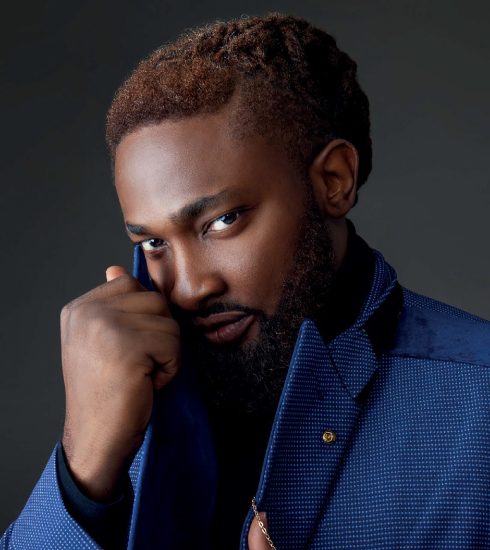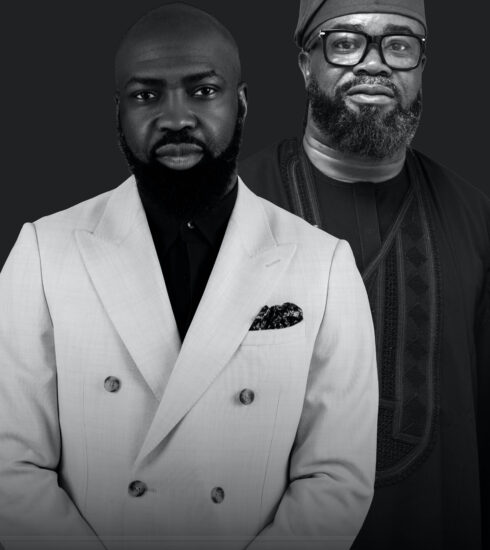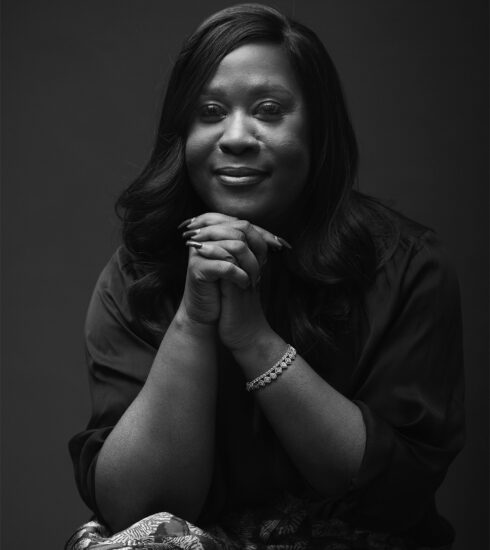Charly Boy: Forever True, Forever The New Man
Since psychology became a tool for assessing the human experience, masculinity has been the subject of an unending debate. From woman, humans have spent centuries trying to enunciate the perceived differences between both genders. This has since led to a set of conventionally accepted rules – some unspoken, others screeched – which have been passed down from generations and have shaped our beliefs today on how each gender ought to be practised. The roles we should play in society, our response to trauma, our choice of clothing, down to the aspirations we are allowed to nurse – for so long, every aspect of our lives has been preset to follow these rules solely based on the genitals we possess. But that is slightly different now, thanks to a man who in the late ‘70s decided to lean towards the other gender, breaking societal norms with every public appearance he makes.
Born Charles Chukwuemeka Oputa, Charly Boy introduced us to ‘the new man’ at a time when it was almost impossible to be anything other than manly without backlash. His persistence to keep pushing the envelope of manliness and him remain in the spotlight since he broke onto the scene 42 years ago.
To celebrate International Men’s Day, DOWNTOWN’s Editor, Onah Nwachukwu Kehindé Fagbule acclaimed ‘Area Fada’ to discuss life as an effeminate man, his illustrious career that cuts across every form of media, and society’s reaction to how he chose to practice his masculinity.
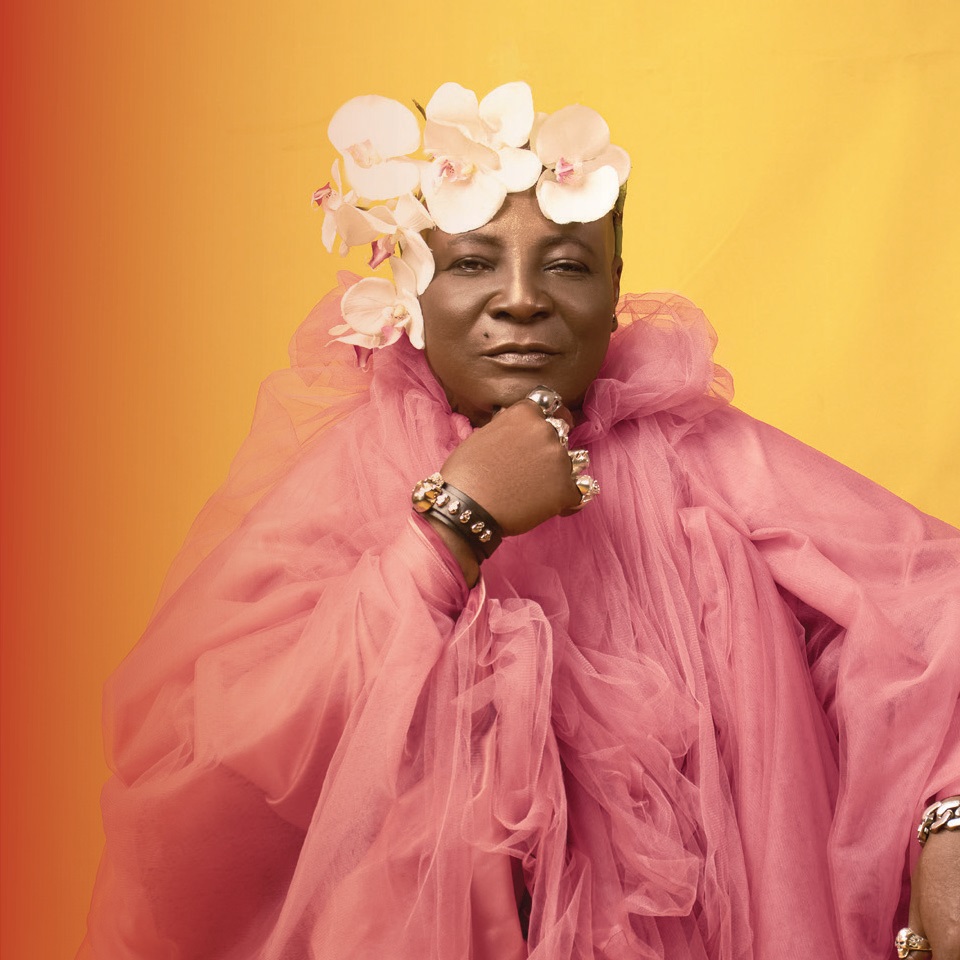
Let’s start from the very beginning. Born into a Catholic household, you had set out to be a priest. Tell us about that time of your life. Why did you leave seminary school?
I grew up in a very warm, loving environment. I grew up on an overdose of morality, integrity, all the value system that has been washed away in the sad river of despair these days. I grew up in an environment where I was allowed to express myself, so that made me a very curious young lad, I wanted to try everything. So at 14, I became an altar boy. At the time there was too much religiosity that was going on in my household and I thought being a priest was the hippest thing to be. I was at the seminary for about eight months and decided that perhaps, the priesthood wasn’t what I liked to do. I wanted to be so many things from a magician (I don’t know why) to an army general and so on, but I’m here now.
The path took you to the music industry. You were nearly denied a record deal due to your unconventional appearance. Do you remember that experience?
I didn’t set out to really be a musician and that’s why I always say till tomorrow that I don’t think I’m a musician. I have a love and passion for entertainment and show business, I figured that I could be famous through that. So when my parents found a job for me and asked me to go work, I refused. I had always wanted to do my own thing. That was when I had to sever my relationship with them because their image was looming too much over me and I didn’t like that. I thought that entertainment was the quickest way to get my freedom, become popular, more than my father. Of course, he didn’t approve of my chosen career, he thought I was throwing my life away; you know how parents usually are sometimes overbearing. That’s how I disowned them and after I finished my Youth Corps around 1979/80, I moved to the village from America to start my musical career and the brand called “Charly Boy.”
You brought a new wave to Nigeria, Punk.
My music wasn’t punk, it was Highlife, and so it didn’t match my look. And a lot of people were left confused.
But the image was punk, you were called, ‘His Royal Punkness’.
Yes, at the time, I first started with the sissy look and that confused a lot of people and they wondered about my sexuality. Some people thought I was mimicking Boy George, but I came before him, even though he was more popular at the time.
How do you react to the Fela comparison?
Maybe I was similar to him in the militant way I approached issues, especially when my big hit 1990 dropped, people thought it was Fela’s. In terms of my music genre, it was mostly Highlife and Afrobeat and what I call fufu music.
You do everything from singing, acting, writing, and directing. You dance as well, right?
There are things I’m not good at and terrify me. Dancing is one of them; I’m hopeless. I don’t like that about me but it is what it is.
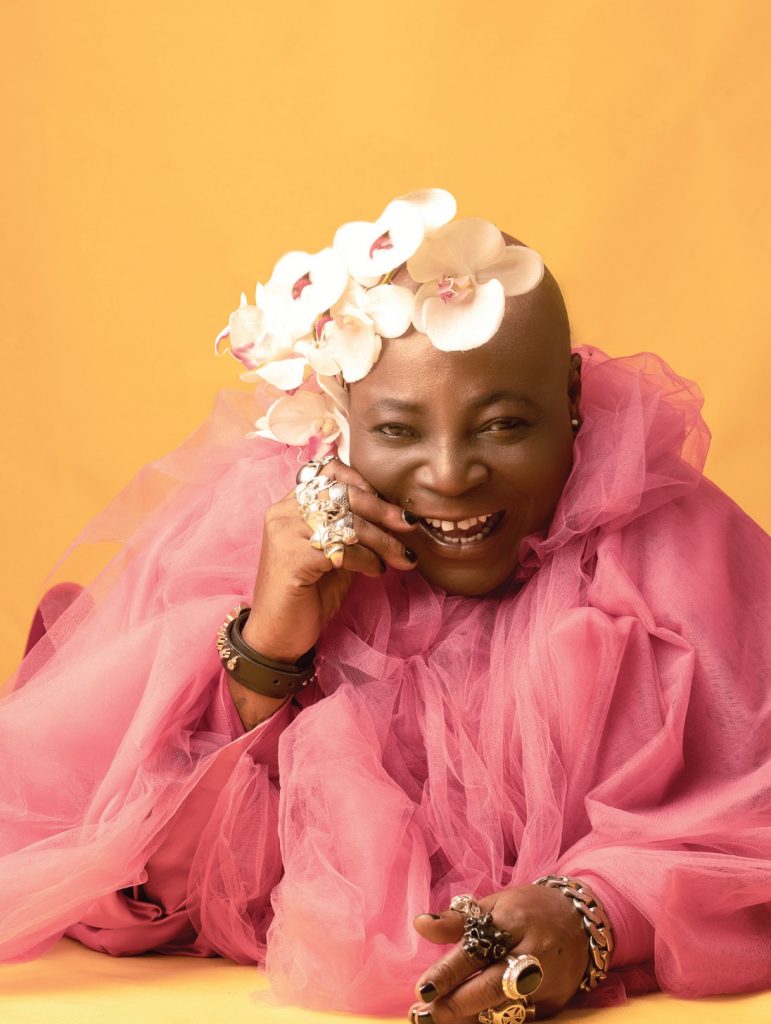
There have been several differences in society from the time you released your 1990 album until now. Aside from your androgynous style which is now a bit more popular, another example is how your song Big Bottom was frowned upon due to its somewhat raunchy lyrics – an element in music that is celebrated today. Do you ever think you were ahead of your time?
My father always said that. In fact, that was the reason he gave that I wouldn’t make it in this society. He would always remind me saying, “this is a very conservative society, people would think you’re going crazy. Nobody is going to understand this. You can’t do business looking like this, you look like a freak.” I used to say back to him, “as long as you know who your son is because this is somebody I’m pretending to be (the alter egos), it is an image, that’s not who I am.” To which he would reply, “…but you are squandering your chances.” A lot of people didn’t believe it was something that was going to go anywhere but I stood my ground and I’m happy that I did that. Sometimes as a pioneer, people forget how things started and that is the bane of pioneers. Because what you see happening in the entertainment industry right now?… a bunch of people and I got together and decided that, ‘we must have respect here.’ The big money in entertainment, and self-respect was introduced by yours truly. I said 21 years ago that the Nigerian music industry would be very global and it would take over the music scene worldwide and people thought I was crazy.
What is the story behind the creation of your alter egos?
I hung around the gay community a lot especially when I was in America. After my third marriage had collapsed, I needed company, someone to talk to; this was in Boston. So I went out one night and decided that the first woman I saw, I was going to talk to her, take her home and have ‘hot’ sex. We were in my sitting room, we chatted till the morning, and she went into the restroom. I had no idea that the person I picked up was a man dressed as a woman. When he came out of the bathroom changed from his costume, I thought someone else came out of my bathroom, I didn’t realise it was the same person. I was just amazed by that transformation and that got me curious. I’ve always had my feminine side but that was what led me to build a character, Ms. Zigizigi, for The Charly Boy Show. I played Linda and Zigi and thought it was cool. But my people didn’t know how to take all of that and that started the rumour that I may be gay too. I have nothing against gay people; I love them. I think they are the most affectionate and sensitive people on earth, but I am heterosexual.
Your activist side, which earned you the name ‘Area Fada’, has been around since forever. Oftentimes, we have seen activists go ahead to seek political power and eventually end up in government. Did you ever consider taking that route?
I already have political power. I am the president of all frustrated Nigerians. The environment is boiling, so there’s no other political office that I’d rather be part of and not politics as it is played here. However, because I understand the dynamics of change being the only constant thing in life, I agree that there is a reason why young people have to change their mindsets. The negative mindset that they are operating in right now won’t help them realise their dream. I know that their environment has become very toxic which is really not their fault because they were born into this rot, but you can’t talk about a future when you are not there when people are making decisions about your future on your behalf. So I think exceptional young people need to get very engaged in politics. I’ve always said that the salvation of this contraption that we call Nigeria lies in the hands of these outstanding people and that demography, as far as I’m concerned, belongs to the youth.
In 1991, you wrote a column for a women’s punlication called Poise. In this age of loudly publicised feminism, being a woman’s ally as a man is sometimes frowned upon and often regarded as weak. What does championing women’s causes mean to you?
I love that. Women are very special people, I have great respect for them. Women are more strong-willed than men. I agree with the fact that men are losing their grip. They don’t create them like they used to. And this is as a result of years of brainwashing for example when we tell men they can’t cry, they have to be a man, and so on. The pressure has been so much on men that they are cracking. The economy and environment have also affected the male more badly than the woman. This is because regardless of how bad it gets, a woman can still bounce back up by taking on menial jobs and petty trades. However, for a man who once had a corporate job, perhaps working in a bank, it is more problematic to start from the bottom. You know men have a big fat ego, and the biggest killer of men is a lack of income. When I started, I could barely put food on the table. I had to send my wife back to America to work and support me back home, I had no shame in my game. I was in the village for seven years, I lost my self-esteem, confidence and everything. I remember when I finally moved back to Lagos to hustle for the making of my album, wearing hair attachment, and people were jerking me around, calling me all sorts of names. And I don’t blame them because I was looking like some weird freak. When you know how big your dreams are, you don’t let anyone stand in your way. I survived thanks to a woman I met who helped me regain my confidence and get back up on my feet. Her name is Tina Onwudiwe, you can’t write Charly Boy’s history without mentioning that name. She always believed in me even when I didn’t believe in myself. I submitted completely to her. I didn’t even think because I was a man and allowed my ego to get the better of me. I love strong women.
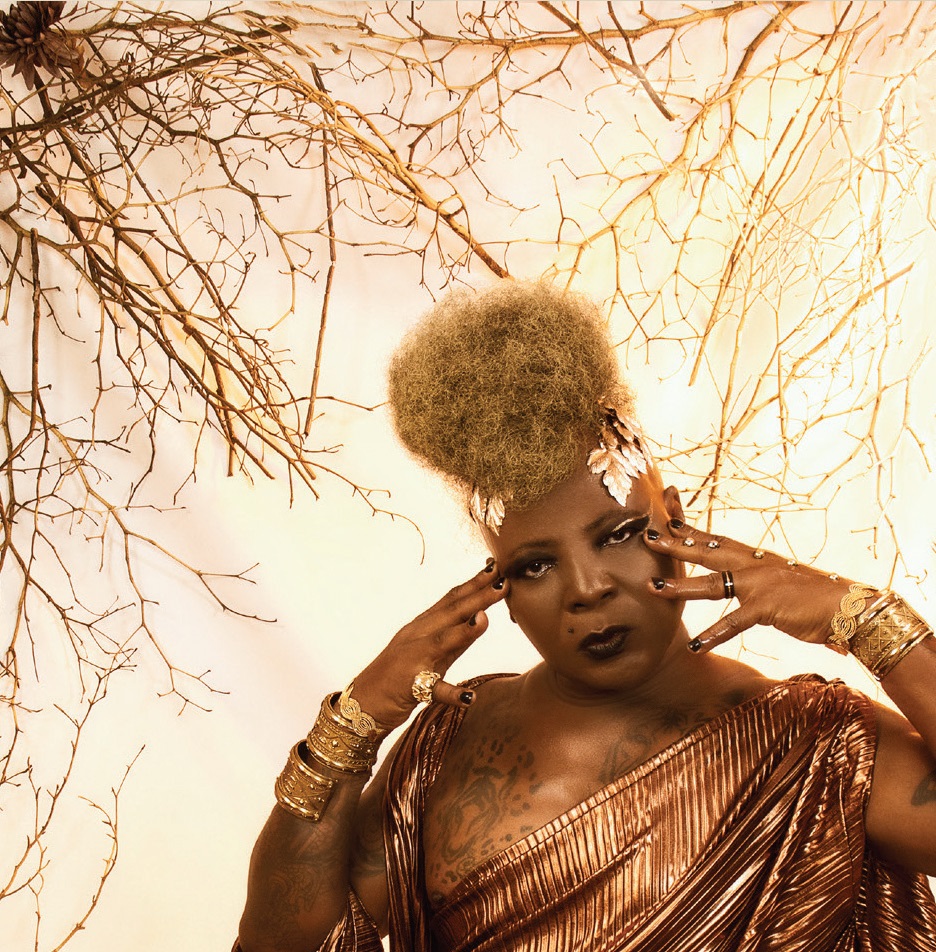
“Be a man!” How do you explain that to a 5-year-old boy?
If you are hurt, you have to cry. I cry a lot when things affect me in a certain kind of way. Being a man doesn’t mean you have to be insensitive to feelings, I don’t subscribe to that. Being a man also means having respect and discipline, it is not just doing as you like. If you are a father, be a great dad. If you’re a husband, respect your partner, and that’s what I call being a man. It doesn’t give you the leeway to do anyhow.
People question your masculinity. If you are effeminate, people tend to shush you and accuse you of not being man enough…
Can anyone shush Charly Boy? Charly Boy will always be whatever he wants to be. And that is why I respect the brand myself because I can never be Charly Boy. That is an image I hide under to do the things I ordinarily wouldn’t do. Ordinarily, I am a shy person, an introvert, and keeping up with Charly Boy can be tiring and weird sometimes, but because I see the brand as a Flamengo, a youthful brand that people have come to love even though they didn’t understand it initially, but it’s something people have come to admire because of its consistency, tenacity, and sagacity, so I think it’s a good thing.
Can we meet you as Charles Chukwuemeka Oputa?
That’s who is talking to you and that’s why we’re talking about Charly Boy in the third person. That is a brand, Charly Boy doesn’t exist. It is a superhero from the figment of my imagination. He is just a character, like Odudubariba in King of Boys.
You are very much in touch with your feminine side, unlike most Nigerian men. In a world where men’s struggles aren’t exactly publicised, what are some of the challenges men go through that don’t make it to society’s ears?
What we discussed earlier, “You are a man, don’t cry, you have to endure it.”
People don’t consider that a struggle though.
That is why the pressure is so much on the man. It is a struggle because nobody is paying attention to the problems of a man simply because we are expected to put up a strong exterior and be silent about it, meanwhile the man is dying.
You have been married for so long. How do you reckon a man can make a marriage work for that long?
I have been married for 43 years. I think after three to four marriages, I have become an expert *laughs*. When people ask me about marriage and add that “you must love your wife,” I often smirk. Love isn’t how it seems in novels, those things are frivolous. In two to three years, familiarity sets in, and people take each other for granted. So marriage is more than the good sex or your partner’s social class. Marriage is about management, perseverance, deep sincere friendship, communication, and mutual respect. These are the qualities that give a marriage life and longevity. It is not about living in ‘la-la land,’ it is not about love. Marriage is a lot of work. Chineke!
The lines between genders are becoming blurred and it is becoming more commonplace with the gradual acceptance of the LGBTQ community in today’s society. Do you reckon that that would do us more good than harm, seeing how the government has reacted to their freedom with laws prohibiting their existence?
We can’t be this conservative and backward forever. The world has suddenly shrunk and it has become a global village. Don’t get me wrong, there are good things to copy, likewise, there are bad things as well, but an individual’s preference of their sexuality is personal and I don’t see all the hue and fuss about it. To each his own and whatever makes you happy, you do. I will always be for the rights of the LGBTQ community because I think everybody should be free to express themselves the way they choose and what works for them. That is the bottom line, and who is to judge? Not us. So if Nigeria is finally coming around, it is a good thing because the world is changing. It doesn’t mean that we have to copy everything. Also, to enunciate on that, who is copying who here? Being gay and lesbianism have been in existence for centuries but because we are a bunch of hypocrites, we are never ourselves, so everybody is pretending to be who they are not. That is why when the law on homosexuality was passed, I was just laughing because some of the people making the laws are homosexuals, so I don’t understand what they are talking about.
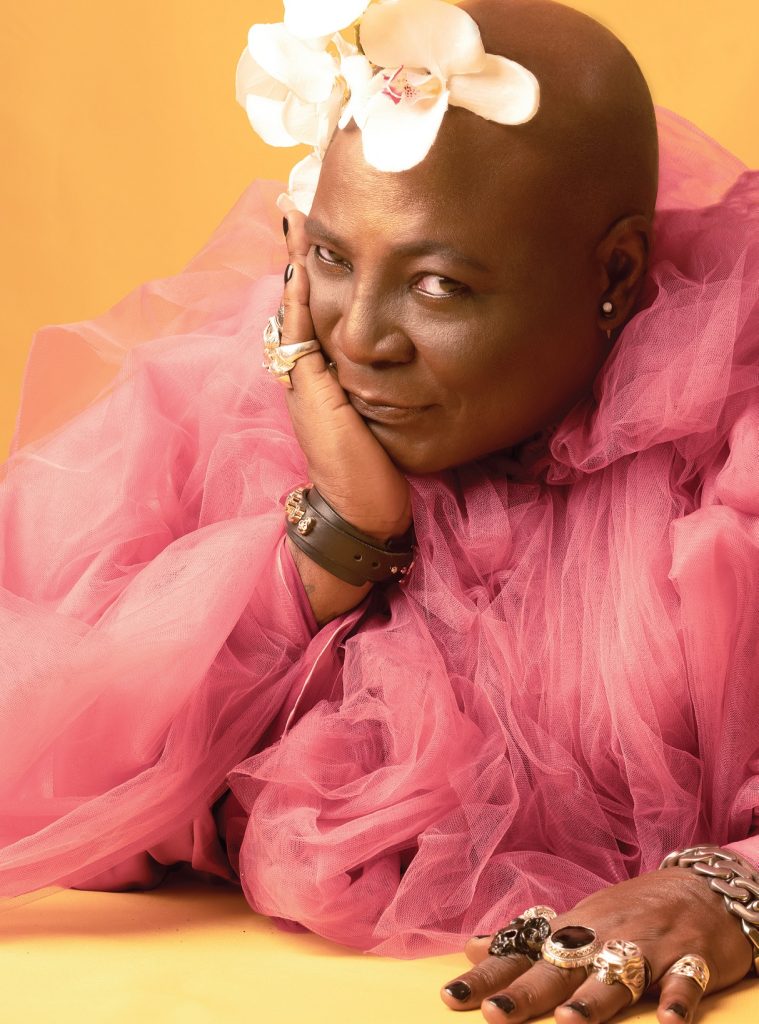
You had a fallout with your daughter when she came out to you about her sexuality. Tell us about that and your relationship with her now.
Fatherhood is not an easy thing. Especially when you’re coming from the old school era, a time when we didn’t have the internet or social media. Nobody was born to be a father; we make it up as we go. But I think what makes a good father is making your children your friends, so they can be free to share whatever with you. I’d rather my children come to me to discuss their challenges and the issues of life than go to total strangers because the little wisdom I have today is from years of failure. I’ve failed in so many things just as much as I have succeeded. I guess my daughter was really pissed with me because she was saying, “Daddy, allow me to tell my own story.” And I appreciate her because I raised my children to be independent and speak up, not to be sheepish. Because of the father I am, I apologised for how I initially handled it. Regardless of her sexuality, as long as she’s happy and not involved in anything negative that brings shame to the family, it is okay, everyone is responsible for their happiness. That experience was a great teaching moment for me: don’t go trying to build your child in your own image and likeness. If the child wants to go in a different direction, as long as it doesn’t affect them negatively or cause them unhappiness, support them.
Did you raise your sons differently from the way you raised your daughters – to be more like men?
Whether male or female, I’ve taught my children to be sensitive and kind in whatever they do. I raised my daughters as soldiers also – not to take any bullshit crap from any man. And I brought my sons up with the mindset that it is okay to cry, it is okay to have low self-esteem, as long as you understand what is happening. There is a recipe for everything in life except death. I brought both my daughters and sons up to be warriors because life is tough. I’m not into a lot of macho things, so that doesn’t factor in the way I raised my sons. I raised them to be independent, to ask questions, and be very curious about life so they don’t have a one-track mind.
Do you think it is okay for men to have communities where they can express themselves and seek help emotionally and mentally?
I think it is a bloody good idea. Unfortunately, seeking professional help isn’t as commonplace over here as it is in first-world countries as poverty is a big constraint. Person wen never chop no fit afford therapy. The most important thing in life that we neglect is mental health. You can’t be mentally alright merely living in Nigeria except you make a conscious effort to protect your mental health. The years of brainwashing that has said that we must take charge even when things aren’t going our way, neglecting the fact that we all can’t be that strong and it is okay. There is so much pressure placed on the man. So if they are falling short, I don’t blame them.
Men are expected to dress a certain way, which you obviously don’t conform with. How would you describe your style?
I guess how people have seen me for the longest time would be in a gothic light. I see the Charly Boy brand as a classic, a special edition, not your regular trendy look. I also love a casual look. I love the freedom of being able to sit on park benches whenever I feel like it, so I usually just go around wearing a casual -fit. And I buy my clothes from okirika, I don’t spend heavily on designers. For instance, I buy my wristwatches from traffic hawkers, and people don’t believe it when I say my watch cost me four thousand naira. Most of the things I wear on my body are madein- Nigeria brands, and people don’t believe that. I don’t have to show off in ridiculously expensive foreign designers, I am already Charly Boy.
What is the intersection between your masculinity and your style?
Do you sometimes try to show your manliness through fashion? I dress according to my mood. Sometimes I feel like Linda, so I dress like Linda. When I feel like Odudubariba, I dress like that. Everything is subject to my mood swings and I have a lot of that. No apologies either.
More people are toeing the line of the non-binary. Biology says they’re a man but they don’t identify as one. What are your thoughts on this?
I sympathize with their position; I have a lot of friends that way. Before I used to say, “How can?” but I’ve discovered that there are a lot of things in this world that I’m ignorant about, so I had taken time to research. And truly from my research, some people feel trapped in a body that they don’t think that they deserve. It doesn’t mean that they are not thinking straight or they are sick. Just like how a lot of people are right-handed, but some people are lefthanded too. There are hermaphrodites too. So if a man says they feel more comfortable being a woman and they feel trapped in a man’s body, I understand that to the “t.”
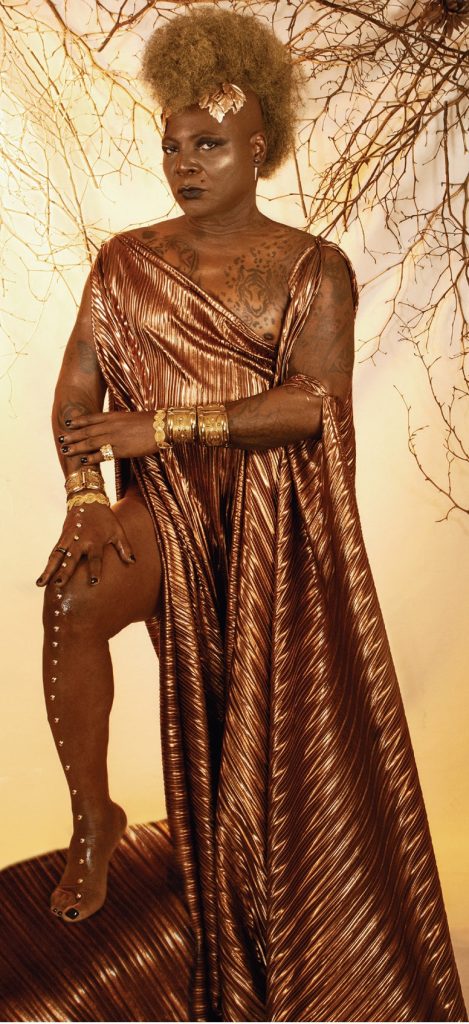
…And those of them who say they are neither male nor female, and go by the pronouns “they/them – the non-binary?”
I understand them as well. I am not your regular everyday Nigerian, I am a global person, and anything that’s happening around the world, I study it but it’s not for me to judge. I am only concerned about the beauty of a person’s soul. ‘Are you sensitive, are you kind?’ those are the things I’m looking for. I don’t care about anybody’s sexual preference, which one be my own?
In your opinion, what are some of the unique qualities of masculinity and why do you think women are attracted to you even though you don’t portray them?
I ask some of my female friends why they are attracted to my person. A lot of them have said it is my vulnerability. Oftentimes they can’t believe that it is the same Charly Boy that breaks down in front of them. For some of them, it is my ability to say it as it is, I don’t have secrets. Some women find that attractive for whatever reason because a typical man has his ego and fear to battle with, so they put up a facade most times. I don’t care, I shout to my friends when I am frustrated, I seek their help when I’m depressed. I have no problem talking about my problems. A lot of men bottle things up, they are afraid to say certain things so people don’t think of them as less of a man. I cry a lot, even when I’m in a room full of women; and I’ve learnt not to carry things over.
Is there anything concerning masculinity that you’d like to say a few words about?
Men should learn to think like a woman.
How do you mean?
When a woman doesn’t like a situation, everyone hears about it. They do a lot of consultation. Also, when you hurt a woman, she is most likely going to cry. Men should learn all of that. I see women as very intriguing. I have been studying them for the past 70 years and I know that they are the stronger gender. So if a man wants to be stronger, go and understudy a woman, even though it is impossible to completely know them. We should try to imbibe a lot of women’s demeanours, it doesn’t make one less of a man, it makes one a better man.
Cover Story Images by Gift Eghator @graphedbyblue
Pink tulle by Stella Emami @firstladyng
Makeup by Seidu Bika Munirat @munictouch for Flawlessivy Cosmetics
@flawlessivycosmetics
Nails by Bold Nailz @boldkraftnailz
Styling & Art Direction by Zubby Eneoma @zubbydefinition
Creative Direction & Concept by The Editor, Onah Nwachukwu @onahluciaa
& Zubby Eneoma @zubbydefinition
Self-identifies as a middle child between millennials and the gen Z, began writing as a 14 year-old. Born and raised in Lagos where he would go on to obtain a degree in the University of Lagos, he mainly draws inspiration from societal issues and the ills within. His "live and let live" mantra shapes his thought process as he writes about lifestyle from a place of empathy and emotional intelligence. When he is not writing, he is very invested in football and sociopolitical commentary on social media.




